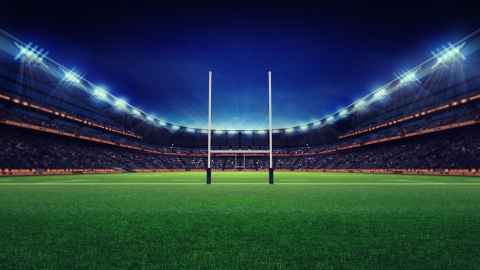Rugby World Cup fever on slow burn
23 October 2019
As the All Blacks prepare for the Rugby World Cup semi-final against England on Saturday, Kiwis have a range of views on how much it matters and how the country will react if they lose.

Sports sociologist Professor Toni Bruce from the University of Auckland is exploring people’s experiences and attitudes about this year's World Cup through a self-selecting survey.
“Overall, the hype and visibility of the Cup seems to be lower this time around,” says Professor Bruce. “People have said they didn’t even know it was happening, or that they didn’t have access so weren’t paying much attention."
She's looking for wide range of views, from those who care deeply about rugby to those who don’t care at all, basing her survey on similar surveys she ran in 2007, 2011 and 2015.
A rugby fan herself, Professor Bruce, who is based in the University’s Faculty of Education and Social Work, says the results from the 250 people who have already completed the 2019 survey are similar to previous surveys, but the most interesting finding is the fragmentation of viewing experiences.
“The shift of coverage to Spark Sport seems to have disrupted the shared viewing experience,” she says. “More people reported watching games on TVNZ than on Spark Sport, although Spark Sport had the edge over TVNZ for live games.”
People also reported accessing information or games on the internet, including YouTube highlights (12 percent). News highlights (19 percent) are popular, and around five percent are following via mobile device updates, newspaper coverage or Spark Sport replays.
The majority (54 percent) are not making much effort to watch, mostly related to access and the late timing of games, and only 18 percent reported making changes to their daily lives. Most people are watching at home (71 percent), either by themselves (22 percent) or sharing the experience with their partner (30 percent) or larger family and whanau (25 percent).
Not surprisingly, most people (70 percent) want the All Blacks to win the Cup, and 77 percent believe they will. The All Blacks are the team that has been watched the most (38 percent), followed by Japan (12 percent), which 14 percent had hoped would win the Cup. Australia, England, Wales, South Africa and Ireland have all attracted between 4-6% of viewers.
Over half wanted more coverage and only 58 percent felt they could watch as much of the Cup as they wanted, leaving 42 percent who were dissatisfied with their level of access. As one fan explained: “The Spark coverage is actually pretty good, but somehow I’m finding it hard to get too wrapped up in it.”
Another wrote, “Because I don’t have access to the games I’m not as engaged as in 2015.” The late timing of games was also reducing people’s engagement.

One pattern that has remained consistent is the low percentage of survey respondents who see winning the Cup as personally important. Only 30 percent felt that the All Blacks winning mattered to them, which is lower than at this point in previous surveys. Only 14 percent reported that it was “very important” to them.
“The percentage of people who see an All Blacks win as important usually increases over the course of the Cup,” Professor Bruce says. “However, only in 2011 did more than half the people (52 percent) agree that a win was important to them.”
She says those who don’t care are uninterested in rugby or feel alienated from its connection to national identity. “In previous surveys, this group has included former rugby fans who are not happy with changes in the game, such as the shift away from free coverage and the increasing commercialisation of the All Blacks.”
Another consistent pattern reveals that even if people don’t personally care if the All Blacks win the Rugby World Cup, they assume that others do. So far in 2019, 75 percent of respondents thought winning the Cup was important to other Kiwis, and 86 percent thought the media was making it out to be an important outcome.
“These numbers are similar to the final results of previous surveys,” she says. “The difference can be explained by the story we tell ourselves as New Zealanders about the importance of rugby. Even though many people don’t care about it, rugby’s long history of being seen as our national sport and the All Blacks as our team makes them think that others must care.”
The survey also asks the question rugby-loving Kiwis don’t want to think about: how will we feel if we lose the Rugby World Cup. Professor Bruce says her research suggests that if the All Blacks lose to England on Saturday, people’s responses will range widely, from despair to delight, as they have in the past.
“Most respondents understand that some Kiwis will be deeply affected by a loss and some identified reactions that could include weeks of ‘bitching’, ‘grief’ and ‘national mourning’. However, most were aware that that emotions could range from elation to deep sadness and even anger.”
One person wrote: “People will be upset. For some it will be devastating.” Another said, “I think the majority of New Zealand will be disappointed, but there are many people that don’t care or just have other interests and priorities.”
Professor Bruce will be adding data collected in her 2019 survey to results of previous surveys to form a picture of changing social attitudes in New Zealand, with a particular focus on sport and identity. She is also keen to share her findings with the public.
Media contact
Julianne Evans | Media adviser
Mob: 027 562 5868
Email: julianne.evans@auckland.ac.nz